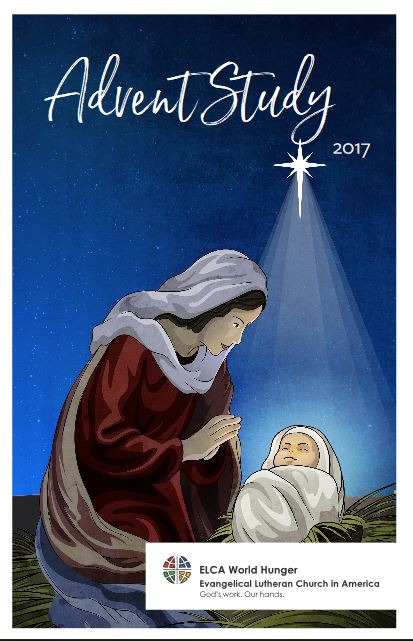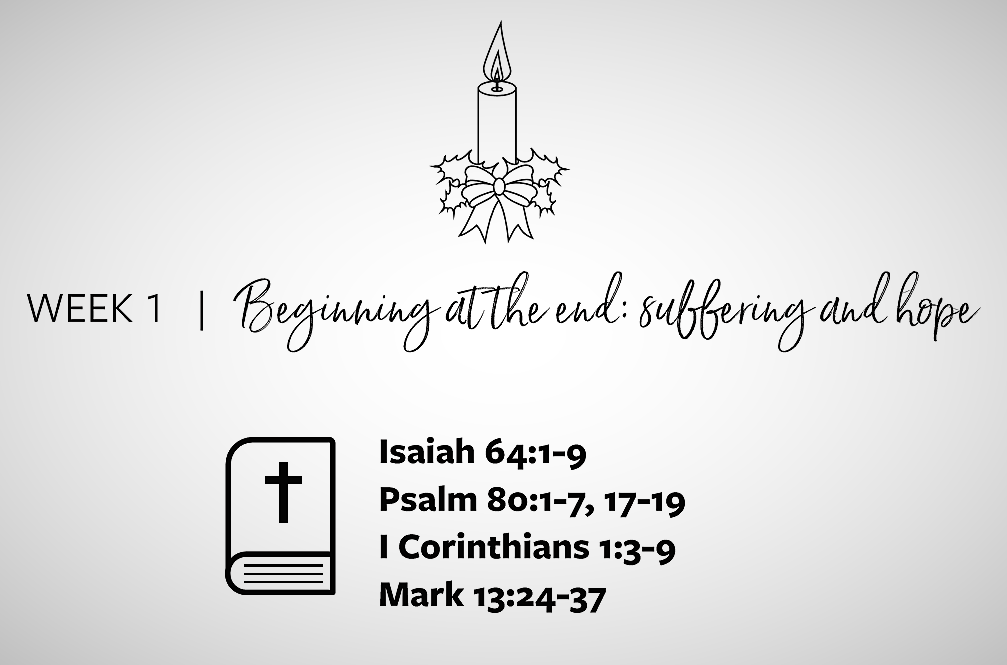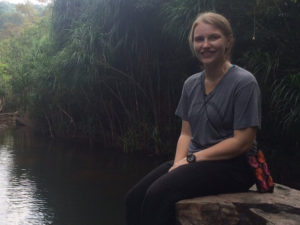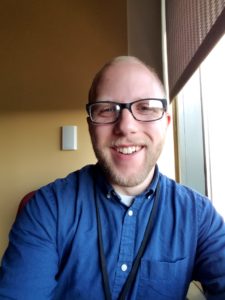“In the wilderness prepare the way of the Lord, make straight in the desert a highway for our God. Every valley shall be lifted up, and every mountain and hill be made low; the uneven ground shall become level, and the rough places a plain.”
(Isaiah 40:3-4)
A voice cries out in the wilderness, “Prepare the way of the Lord!”
What does baptism look like in your congregation? How is it celebrated? What rites are practiced? Without consulting an official survey, it’s probably a safe bet that most baptisms don’t involve camelhair vestments, locusts during the after-service meal, or much crying out (except, perhaps, for an infant who just got doused).
Perhaps this wasn’t even what most folks reading Isaiah envisioned when they first encountered John the Baptist, the strange messenger assembling a following from “the whole Judean countryside” (Mark 1:5). But the Gospel makes clear the link between John and the one prophesied in Isaiah, the one who would announce the coming of God’s salvation in the form of the Messiah.
The voice crying out, the one Mark identifies as John the Baptist, “calls for a radical transformation of earthly topography in prelude to a mind-blowing revelation of the glory of the Lord to all people.”
The very natural landscape of the earth will be changed by the arrival of the One who is to come. The author of 2 Peter keeps up this theme, proclaiming that “the heavens will pass away with a loud noise, and the elements will be dissolved with fire, and the earth and everything that is done on it will be disclosed” on the day of the Lord (2 Peter 3:10).
The world is about to turn, mightily, and that transformation is coming.
Mark’s brief but powerful introduction to John the Baptist is a prelude to Jesus’ baptism and the beginning of his ministry. Voices crying out, the transformation of the earth proclaimed, and release to captive Jerusalem is announced (Isaiah 40:1). It is quite the scene!
So, again, the question – what does baptism look like in your congregation?
In baptism, we are made children of God, “sealed by the cross of Christ forever.” In the covenant of baptism, Lutherans believe we are claimed by the power of grace, gathered into community with one another, and send by God’s grace into the world. When we affirm our baptism, we affirm our identity as part of the body of Christ with a solemn vocation to:
- live among God’s faithful people;
- hear the word of God and share in the Lord’s Supper;
- proclaim the good news of God in Christ through word and deed;
- serve all people, following the example of Jesus; and
- strive for justice and peace in all the earth.
In baptism, we are baptized into Jesus’ death and resurrection, but we are also baptized into the transformation of the world that God is enacting, a transformation that heralds “new heavens and a new earth” (2 Peter 3:13) in which “God’s glory may dwell in our land” (Psalm 85:9).
John’s pronouncement, drawing on Isaiah’s prophecy, is “comfort” to the people who wait with eager longing for redemption and a word of warning to their oppressors: the world is about to turn, make straight the paths.
Change is coming, and that right soon.
We, the people of God, are called to be part of that chance. In baptism, we are commissioned to increasingly live, hear, proclaim, serve and strive for the transformation of the world. As it was in Jesus’ time, the baptismal announcement today should be joyous news to those anxiously awaiting transformation and terrible news for those who would perpetuate an oppressive and unjust status quo.
What would it look like for the pronouncement of Isaiah and John the Baptist to shape our own practices of baptism, to see the sacrament as the sacred calling, gathering and sending of one who will be part of the very transformation of the world? “I introduce you to the newest member of the body of Christ!” would be words that would shake the foundations of community, for they would announce the re-birth of a person into the work of God “who is turning the world around!”
Reflection questions
- How can our celebration of baptism better reflect the commissioning of new Christians to be part of God’s transformation of the world? How does our celebration of baptism already do this?
- What voices do we hear “crying out” today, declaring the need for the transformation of the world? What “voices crying out” today do we hear proclaiming the transformation of the world?
- Re-read the baptismal covenant quoted above. What do each of these commitments mean to you? How do you live them out in your life?
Prayer
Gracious God, in baptism, you welcome us to fellowship with you and claim us as your own. Give us strength and courage to live our baptismal vocation as a sign of hope to all who await the fullness of your reign. Open our eyes and hearts to see your hands at work in our world, reconciling all creation to you. In the name of your son, Jesus Christ, into whose death and resurrection we are baptized. Amen.
Hymn suggestions
There’s a Voice in the Wilderness ELW 255
Prepare the Royal Highway ELW 264
I’m Going on a Journey ELW446
To download this entire study, or to see some of our other congregational resources, please visit www.elca.org/Resources/ELCA-World-Hunger.




 Haley Toresdahl
Haley Toresdahl